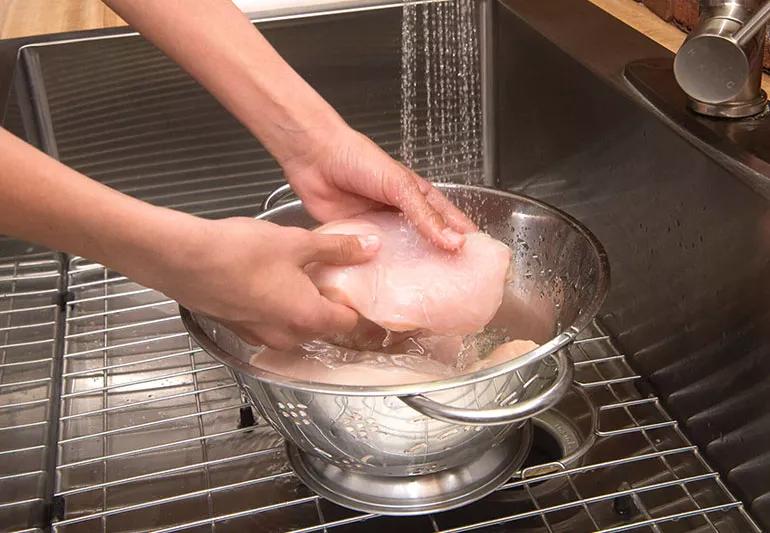Safety tips for preparing raw meats & other foods

Image content: This image is available to view online.
View image online (https://assets.clevelandclinic.org/transform/4fc78f8c-5825-4981-af87-642ac35e7cf3/rinseChicken-MC-ios3-050520-770x533-1_jpg)
rinsing raw chicken
Washing food before you eat it may sound like a good idea, but that’s not always true.
Advertisement
Cleveland Clinic is a non-profit academic medical center. Advertising on our site helps support our mission. We do not endorse non-Cleveland Clinic products or services. Policy
Registered dietitian Laura Jeffers, MEd, RD, LD gives these guidelines for food safety.
Advertisement
Advertisement

Sign up for our Health Essentials emails for expert guidance on nutrition, fitness, sleep, skin care and more.
Learn more about our editorial process.
Advertisement
Leftovers can be kept in the fridge for three to four days or frozen for three to four months
Ultimately, rice is safe to eat, but the type, where it’s grown and how you cook it may be factors to consider
Washing your hands, thoroughly cleaning kitchen tools and preparing meat separately can reduce the risk of foodborne illness
Extended outages lasting more than four hours can make food in your fridge unsafe to eat
Make your home a no-fly zone by cleaning your drains, refrigerating your produce and DIYing a fruit fly trap
Microwaves use non-ionizing radiation and haven’t been shown to cause cancer — follow food safety practices and use microwave-safe containers
Once perishable food hits the table, it’s typically good for about two hours
Color, texture, smell and expiration date all hold important clues
Although it could be used as a moisturizer, this new trend is not recommended
Communicating clear limits helps protect your time, energy and emotional well-being
High cholesterol can be genetic, but testing and treatment can lower your heart disease risk